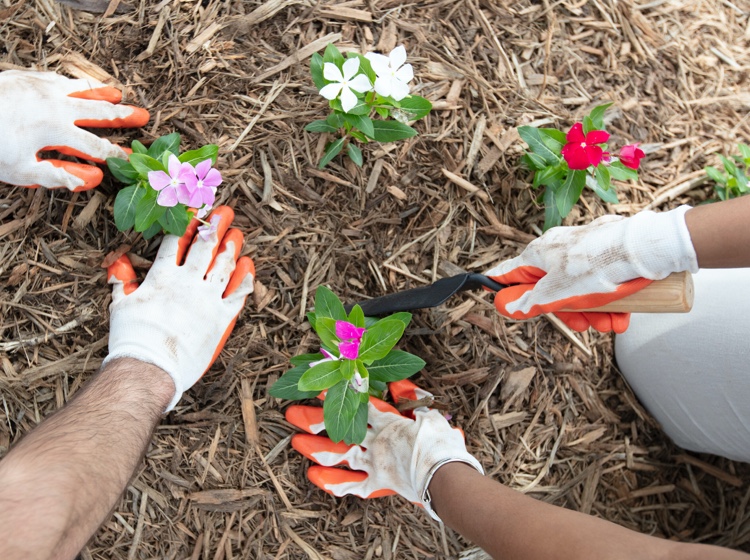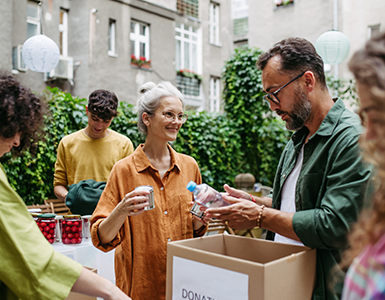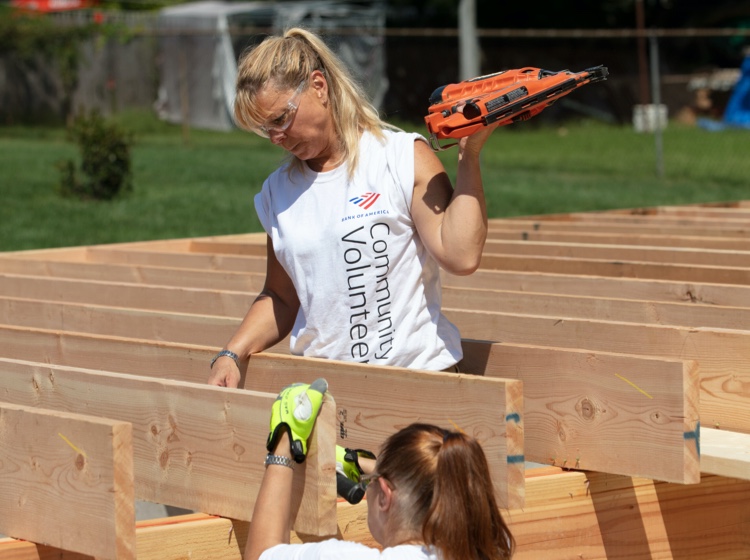Grants, sponsorships, programs and employee opportunities

Nonprofit grant funding
At Bank of America, we’re guided by a common purpose to help make financial lives better. Through our focus on Responsible Growth, we deliver for our teammates, clients and shareholders, while also addressing the needs of individuals and families in the communities where we live and serve.
We drive meaningful and sustainable progress by bringing the full power of the bank together to advance economic mobility – this includes strong partnerships with nonprofit organizations and programs that align with our commitment to support economic opportunity for all.
Our Priorities: Basic needs, income creation, stable housing, empowered communities
All thriving communities start with meeting the individual basic needs of its members. That starts with ensuring certainty when it comes to shelter, food and health.
As basic needs are established, individuals can focus on development through mentoring, skill building, work experience and entrepreneurial growth. These activities enable the creation of income for both the individual, as well as those they serve and employ. Income creation and access to affordable housing allows individuals to find stability through stable housing in neighborhoods where connections are further strengthened.
Stable, skilled, connected individuals contribute to the growth of empowered communities that give back to their neighborhoods, address systemic issues head on and ensure the longevity of where they call home. This is growth.
If your organization aligns with our priorities and meets our eligibility criteria, you'll be directed to our online application. More information about the Bank of America Charitable Foundation, including 2026 grant application dates can be found here.

Supporting developing leaders and helping communities thrive
Local nonprofit organizations play an important role in addressing societal challenges and advancing economic opportunity in our communities. Since 2004, our commitment to the Neighborhood Builders® program has reflected Bank of America’s longstanding and continued philanthropic investment in nonprofit leadership development across the U.S. Over two decades, we’ve invested more than $346 million in communities across the U.S. and trained more than 4,000 leaders at nearly 2,000 U.S. nonprofits.
From May 1 to June 1, the 2025 Neighborhood Builders® application is open to 501(C)(3) nonprofit organizations that meet the eligibility criteria.
As a Neighborhood Builder, each organization receives comprehensive leadership training for the executive director and an emerging leader. The group also joins a nationwide network of peer organizations and gains the opportunity to access resources to expand their impact.
If you or someone you know is interesting in advancing nonprofit leadership and community impact, learn more about our Neighborhood Builders eligibility criteria.

Sponsorships
Through our regional U.S. sponsorships, we support the economic, social and cultural life of the places we live and work. We provide an extensive program of arts and sports sponsorships to help maintain vibrant, healthy communities. This includes underwriting art exhibitions, events and performances that require private funding to make them a reality. Our regional sports sponsorship investments include the Bank of America Chicago Marathon, Major League Baseball® and Bank of America™ ROVAL 400.

Employee giving and matching gifts
Bank of America’s employee giving program encourages employees to make an impact in their communities by supporting the causes they care about through donations to eligible organizations. Employees can double their impact with matching gifts, up to $5,000 (U.S.) per person each calendar year, from the Bank of America Charitable Foundation. Each year, our employees direct more than $60 million in total to communities via individual giving and matching gifts.

Volunteerism
Each year on average, Bank of America employees and retirees volunteer 2 million hours supporting thousands of organizations around the world, mentoring youth, advancing better money habits for individuals, building affordable housing, and so much more to strengthen communities. The Bank of America Charitable Foundation honors this dedication through volunteer grants, which employees and retirees may earn and direct to eligible organizations, up to $1,000 (U.S.) each calendar year.
